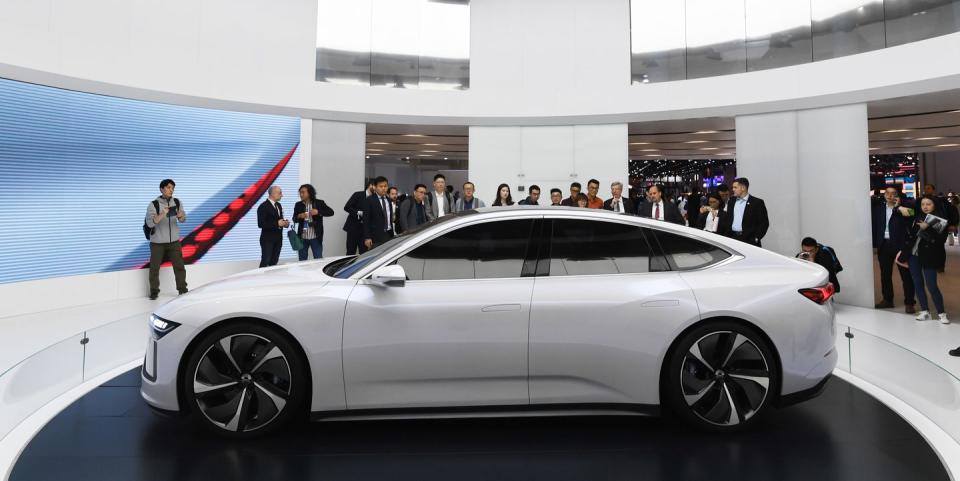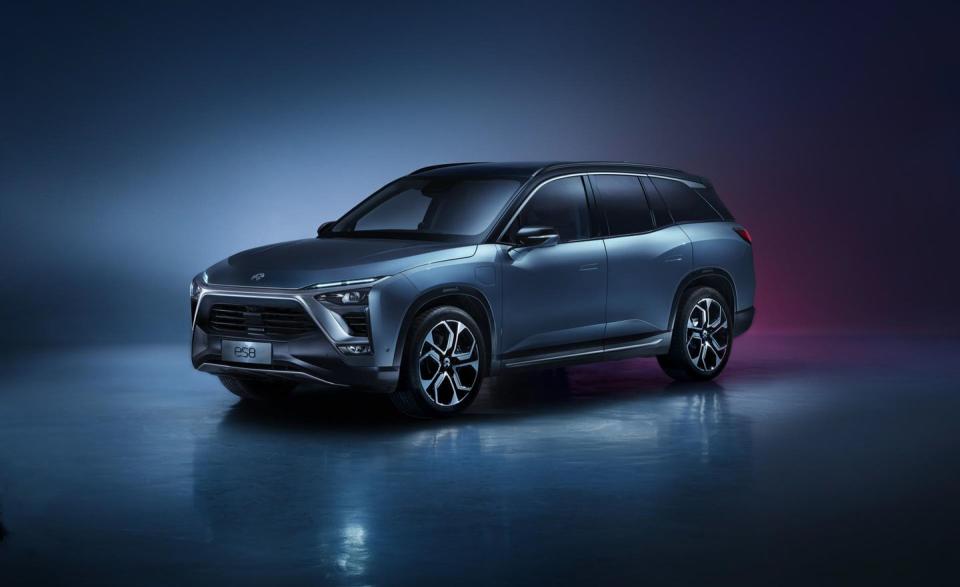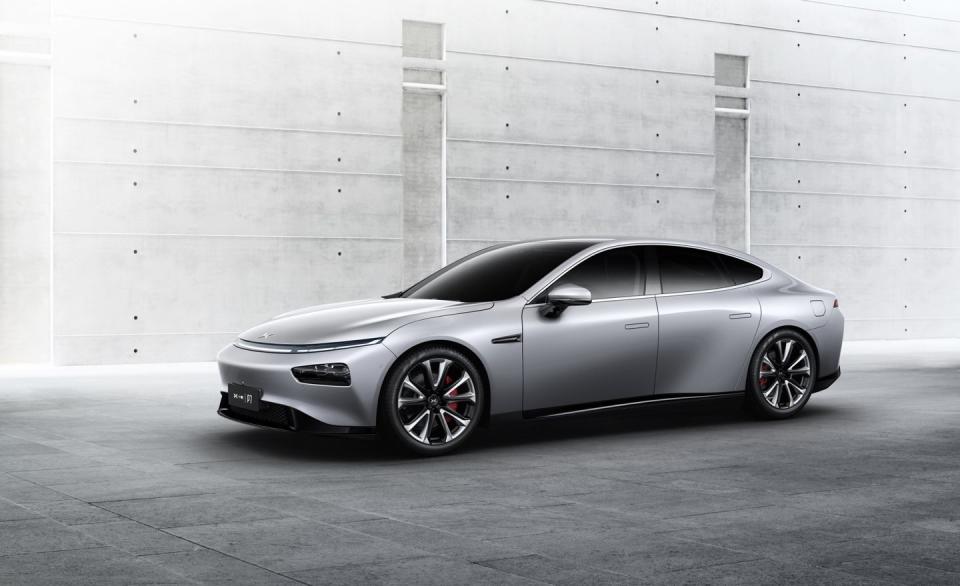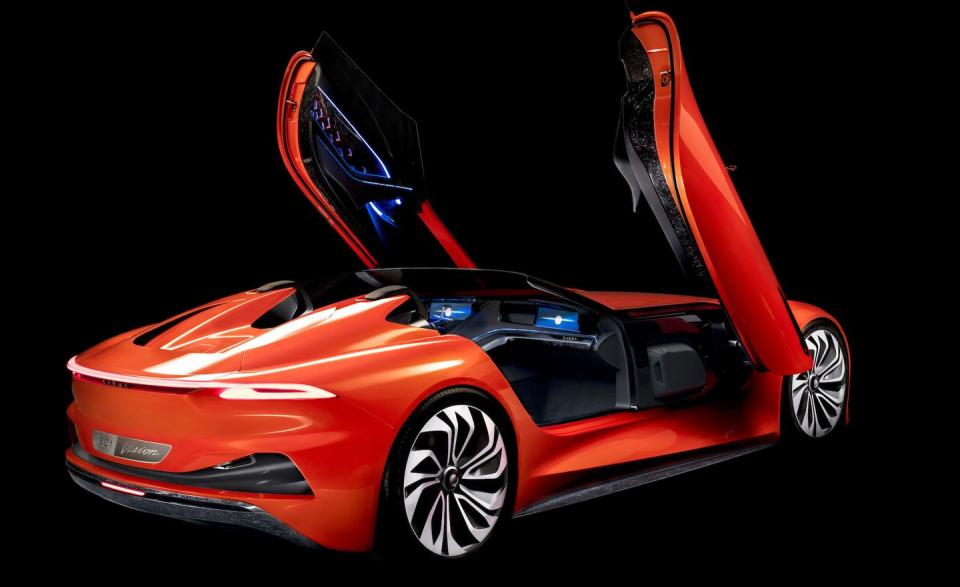Which Chinese Cars Are Coming to the U.S.? The Shanghai Auto Show Offered Strong Hints

The Shanghai auto show had some names already well known in the U.S., among them Buick and Karma, formerly known as Fisker.
The car market in China is slowing slightly, although sales of EVs and plug-in hybrids are growing dramatically.
The most likely to be U.S. bound are those backed by major automakers such as Geely and Daimler.
There were two major international auto shows last week, with New York and Shanghai practically clashing with each other. From the U.S. perspective there's no doubting which is the more important, and which is the easiest trip from our Midwest heartland. But for the global auto industry, China was the more significant one. Both because of the Communist state's huge enthusiasm for cars, but also because its domestic industry is growing ever closer to breaking into western markets.
One of the most striking things about spending time in a major Chinese city is the relatively low number of local-brand cars you see on the streets. Affluent buyers want foreign models, and although almost all these have been made in China through joint ventures, they still represent a valuable source of earnings for the manufacturers concerned. Although these are mostly European and Japanese, Buick remains one of the most popular marques in the People's Republic: just over a million were sold there last year.
After years of dramatic expansion, the Chinese car market has been slowing, and sale actually fell last year: 23.2 million sales was a 4 percent reduction from 2017. But sales of what are termed "new-energy vehicles"-plug-in hybrids and electric vehicles-are increasing dramatically, with an 85 percent year-over-year jump in March to more than 126,000 cars.
These new-energy models are split between existing makers as well as a huge array of EV startups, with nearly 500 of these officially registered with the Chinese government. Of them all, only a modest number are likely to make it to volume sales in China, let alone abroad. So which are is most likely to eventually make it to the States?

High-Energy Startups
While several startups are already producing cheap, low-powered models for the China market, only a few are anywhere near the point of selling cars with any degree of international appeal. The furthest forward is probably Shanghai-based Nio, which won some attention by backing a Nürburgring EV record in 2017 and is listed on the New York Stock Exchange. It has already delivered more than 15,000 of its ES8 SUVs in China; the smaller ES6 is set to go on sale in June.
Nio showed a handsome EV sedan badged as the ET Preview (photo at top), which we'd imagine would have no difficulty finding buyers in the States if it were priced to undercut Tesla, but although the brand hopes to expand beyond China, it won't be happening soon. "We will go global with sale in both Europe and the U.S.," Roger Malkusson, Nio's VP for vehicle engineering, told C/D at the show, “but we don't have any plan we can reveal for when that can happen . . . you need to be very humble to go to new markets. We have an advantage here compared to Tesla, we know China. But we lose that advantage when we go to Europe and the U.S."
Even more Tesla-like is Xiaopeng Motors, which markets itself as Xpeng in China, and which showed its first EV at the CES electronics show in Las Vegas last year. Xpeng showed a very Tesla-esque P7 at Shanghai, a coupe-styled sedan with a claimed 310-mile range under the optimistic NEDC testing protocol that China still uses. Xpeng is open about its desire to emulate Tesla and ultimately to sell beyond China; however, one of its employees is also being sued by Tesla, accused of having stolen Autopilot source code.

Aiways is another startup claiming to be close to sales outside China. The U5 SUV was shown at the Geneva auto show in March, while the bigger U7 (pictured above) was previewed in Shanghai. The company has confirmed it plans to have cars in Europe, on a lease-only sales model, as soon as 2021. At Geneva, we were told the ambition is to come to the United States shortly after that.
Geely and Other Mega-Automakers
But it is the Chinese brands with the backing of larger automakers that seem most likely to come to the States. The most obvious of these is Geely, the vast industrial conglomerate that owns both Volvo and Polestar as well as Geely Auto. Geely Auto sells Geely-branded models but also controls Malaysia's Proton, former Proton subsidiary Lotus, and the freshly launched Lynk & Co brand, which is already selling substantial numbers of cars based on shared Volvo underpinnings in China. Geely also launched a new EV-only brand at Shanghai called Geometry, and we've already driven its first offering, the A sedan. While Geometry won't come to the U.S., the plan is for Lynk & Co's EV models to be offered here as soon as 2021, with a limited launch of the brand in the San Francisco area.
But Chinese models will also come from unexpected directions. Daimler has sold half of the Smart brand to Geely, and next-generation models from the city-car brand are likely to be built in China. Similarly, BMW has formed a joint venture with Great Wall for the development and construction of the next-generation Mini hatchback EV, at least some of which are likely to end up in the U.S.

Yet there is also a Chinese brand that is already selling cars here, in a very modest way. Chinese parts maker Wanxiang Group bought what was left of Fisker Automotive after it went bankrupt in 2014. Now known as Karma, which was formerly the name of the model, the company has launched a heavily revised version of the Revero sedan with a 1.5-liter BMW three-cylinder range extender in place of the former 2.0-liter GM unit. Karma also showed a production-viable coupe concept at Shanghai as well as a Vision concept we're told shows the brand's aspiration to become an "open-platform luxury automotive incubator."
So to attempt to answer the question we set at the top, the Chinese aren't here yet. But they are coming, and quickly.
('You Might Also Like',)

 Yahoo Autos
Yahoo Autos 